-
 Robert Feldman provides a macro-economic roadmap for Japan for this year, from growth and labor productivity to immigration and AI.
Robert Feldman provides a macro-economic roadmap for Japan for this year, from growth and labor productivity to immigration and AI.
-

Japan’s New (Economic) Security Agenda and Emerging Regional Leadership
Michael Beeman, Patricia Maclachlan and Ulrike Schaede discuss the opportunities and threats for Japan in light of rising national economic security concerns, in particular for supply chain resilience, trade and tariffs, and food security. -

Japanese Business and Politics in the Shadow of Trump’s Tariffs, with Gearoid Reidy
Gearoid Reidy of Bloomberg Tokyo discusses the effects of the shifting U.S. policies on Japanese business and economic policies. -

“Japan Re-Emerges”: A Discussion of Ulrike Schaede’s New Book
Brad Glosserman and Ulrike Schaede discuss “Japan Re-Emerges”, her new book on Japan’s Mainoumi strategy and why slow is not stagnant. -

Walking Out: Implications of America's New Trade Policy for Japan
Michael Beeman, formerly USTR, discusses his book “Walking Out” on how over the past two decades America has undercut the very trade rules it created after WWII, and how that withdrawal affects Japan.
-
 Noriyuki Shikata of the Cabinet Office discusses Prime Minister Kishida’s policy priorities in 2024.
Noriyuki Shikata of the Cabinet Office discusses Prime Minister Kishida’s policy priorities in 2024.
-

Japan Re-Emerges? – A Discussion of Ulrike Schaede’s New Book, with Nobuyuki Oishi
Nikkei journalist Nobuyuki Oishi joins Ulrike Schaede to discuss her new book “NEW Japan Management (Japan Re-Emerges)." Japan’s leading companies have undergone a quiet transformation, and the results are showing now. -

Japan’s Venture Capital Industry Today, with Tim Romero
Tim Romero, entrepreneur, venture capitalist, and podcaster in Japan, discusses Japan’s innovation ecosystem from the inside out. -
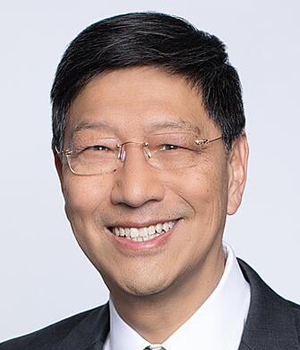 Albert Chu, CEO of SOMPO Digital Lab, discusses the disruption of Japan's insurance and nursing care industries, in light of the challenges and opportunities brought by AI and Web3, aging and cyber trends.
Albert Chu, CEO of SOMPO Digital Lab, discusses the disruption of Japan's insurance and nursing care industries, in light of the challenges and opportunities brought by AI and Web3, aging and cyber trends.
-

Japan at an Inflection Point? The Ups and Downs of Japan’s Economic and Investing Landscape, with Anne Vandenabeele
Anne Vandenabeele, partner and economist at Capital Group, discusses the Japanese economy in light of current challenges of exchange rate, growth patterns and marked changes. -
 Peter Gruss, former president of the Okinawa Institute of Science and Technology (OIST) and Germany’s Max-Planck Society, shares his insights in the organization and future of research excellence in Japan and Germany.
Peter Gruss, former president of the Okinawa Institute of Science and Technology (OIST) and Germany’s Max-Planck Society, shares his insights in the organization and future of research excellence in Japan and Germany.
-
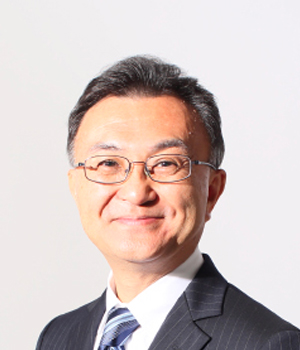 Takashi Kiyoizumi, a pharma industry veteran and angel investor, discusses life science innovations from Japan and recent trends in Japan’s life science innovation ecosystem.
Takashi Kiyoizumi, a pharma industry veteran and angel investor, discusses life science innovations from Japan and recent trends in Japan’s life science innovation ecosystem.
-

The Contest for Japan’s Economic Future: Entrepreneurs Vs. Corporate Giants, with Richard Katz
Journalist Richard Katz discusses his new book on trends and challenges of entrepreneurship and startup companies in Japan. -

Entrepreneurs in Japan – A View from History, with Robert Feldman and Kenji Kushida
Robert Feldman of Morgan Stanley in Tokyo and Kenji Kushida of the Carnegie Endowment for International Peace discuss the entrepreneurship in Japan based on the book "History of Innovative Entrepreneurs in Japan" by Takeo Kikkawa. -

Dream Super-Express: A Cultural History of the World’s First Bullet Train, with Jessamyn Abel
Jessamyn Abel explores the cultural history of the 1964 Tokaido Shinkansen, from the transportation technology feat to city scaping, layered cities, and cultural identity. -

Japan’s Economic Security and Role in Global Supply Chains, with Mariko Togashi
Mariko Togashi of IISS discusses Japan's new economic security policy and changing industrial policies, with a particular emphasis on Japan’s role in the global semiconductor production and supply chains. -
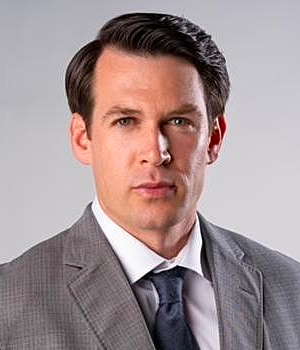
USTR and the Current State of U.S.-Japan Trade Relations, with Scott Wilbur
Scott Wilbur from USTR discusses U.S.-Japan trade relations and the shift in U.S. trade policy to a global worker-centered agenda. -

Flying Cars and Japan’s Startup Innovation Ecosystem for DX Air Mobility, with Asa Quesenberry
Japan is a frontrunner in flying car technologies and the associated smart city infrastructure tech. Asa Quesenberry, CEO of Osaka-based SkyScape, discusses this industry and the startup innovation system surrounding it. -

The Competition for Asia’s Financial Services Hub – Can Tokyo Win?, with Samuel Gordon
Samuel Gordon, partner at Deloitte-Tohmatsu Japan, discusses the many challenges for Tokyo to become Asia's financial hub. -

Beyond Dentsu – Japan’s Changing Branding and Marketing Strategies, with Andreas Dannenberg
Andreas Dannenberg, CEO and Founder of Ad-comm, explains the role of Dentsu in Japanese marketing, and how the Olympic scandal offers a chance for change in Japanese global brand identity building. -
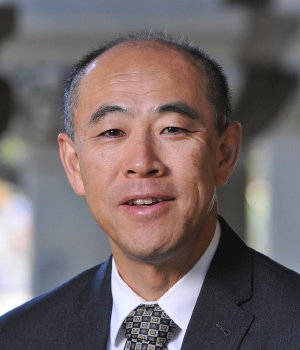
The Bank of Japan Going Forward: Debt, Inflation and Monetary Policy Choices, with Takeo Hoshi
Takeo Hoshi discusses the options for The Bank of Japan’s monetary policy going forward, and how debt, wages, and the exchange rate pose constraints on the incoming Governor Kazuo Ueda. -
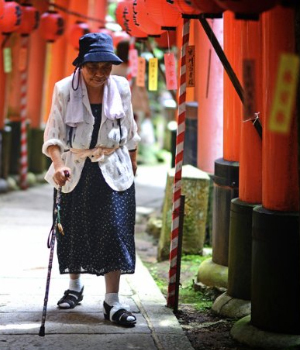
The Leading Edge of Aging: Lessons from Japan, with Sarah Lubman
How is Japan adapting to aging? Sarah Lubman discusses why the rest of the world should pay more attention to Japan's experiences, and how Japan's extreme demographic shifts may inspire an age of innovation. -

Japanese Business in 2023: Rising Uncertainties and Competitive Challenges, with Michael Alfant
Michael Alfant, CEO of Fusion Systems Group, discusses how innovation and entrepreneur differ, how governments can foster both, and how Japanese society differs in its assessment of risk and success, as opportunities for businesses abound in Japan now. -
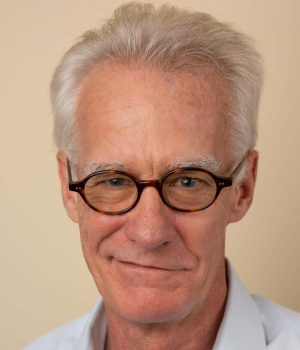
Japan and Korea in the Indo-Pacific: A Preview of 2023, with Stephan Haggard
Stephan Haggard discusses how Japan and South Korea view the shifting dynamics of the Indo-Pacific, in particular the impact of the Ukraine war and NATO, China’s 20th Party Congress, U.S. policy shifts, Taiwan, the Korean peninsula, and Japan-South Korea relations. -
 David Wagner shares his advice on strategic moves for effective media communication and crisis handling, and lays out where companies and organizations in Japan sometimes fall short or are hampered by systemic constraints.
David Wagner shares his advice on strategic moves for effective media communication and crisis handling, and lays out where companies and organizations in Japan sometimes fall short or are hampered by systemic constraints.
-

Changing Employment Norms and Women in Japan’s Workplace, with Hilary Holbrow
How is lifetime employment changing, and what do those changes mean for career prospects for female professionals? Even as old patterns of long work hours and after-hours drinking become less common, women still run into biases and assumptions, as well as societal pressures on choices and behaviorial norms. -
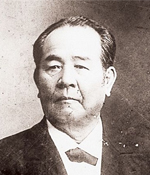
Eiichi Shibusawa's Legacy and Japan's "New Capitalism", with Robert Feldman and Patricia Maclachlan
Prime Minister Kishida Fumio has announced a plan to ensure that Japan’s “new form of capitalism” is good for all. This leans heavily on the tradition of Japan’s “father of capitalism” and “captain of industry”, Shibusawa Eiichi. By increasing the metabolism of the economy and (re)introducing redistribution, Japan hopes that growth in commerce will achieve a "triple win” for business, people, and the economy and society overall. -
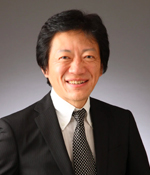
Japan's Health Innovation: Looking into the Future, with Akihiko Soyama
Japan’s health innovation ecosystem is growing fast. A major player is the Life Science Innovation Network of Japan (LINK-J). Aki Soyama, CEO of LINK-J, discusses current trends in Japan’s life science startup scene and its rising global impact. -
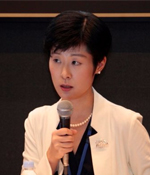 Cybersecurity is becoming more important than ever. Mihoko Matsubara discusses Japan’s successful efforts to defend against 450 million cyberattacks during the Tokyo Olympics, the creation of a Cyber Bureau in the National Police Agency, new strategies to prepare to defend, and international collaboration in fighting cybercrime.
Cybersecurity is becoming more important than ever. Mihoko Matsubara discusses Japan’s successful efforts to defend against 450 million cyberattacks during the Tokyo Olympics, the creation of a Cyber Bureau in the National Police Agency, new strategies to prepare to defend, and international collaboration in fighting cybercrime.
-
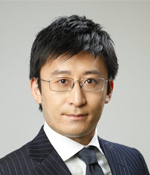
Japan’s New Economic Statecraft: What It Means for Geopolitics in 2022, with Akira Igata
Japan has seen a marked shift in its foreign policy and national security calculus, triggered by the rise of dual-use technologies, the new emphasis on a “free and open Indo-Pacific”; and the rise of China. Akira Igata discusses Japan’s new plans for using global economic policy for security gains, the rise of economic coercion, and what we can expect under Prime Minister Kishida. -
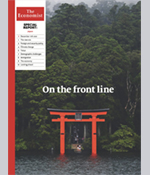
Japan in 2022, with Noah Sneider
Japan is not an outlier, but a harbinger of things to come, which makes it as relevant as ever. Noah Sneider, Tokyo Bureau Chief of The Economist, discusses what lies ahead for Japan in 2022, as the country’s strategies on geopolitics, ageing, digital disruption, climate, environment, market reforms, and “new capitalism” are evolving.
-

Women in Japanese Science, Business, and Politics, with Yuko Harayama
11/30/2021: In Japan, professional women are notoriously underrepresented in STEM and university positions, and even more so in senior business positions and politics. Dr. Yuko Harayama, former member of the Cabinet Office Council for Science, Technology and Innovation and one of the leading women in Japanese science and technology, speaks on the challenges and opportunities for women in today’s Japan, why politics seems so impenetrable, and how business can change toward more diversity and inclusion. -

Asia’s Long Exit from Overseas Coal Financing, with Michael Davidson and Toshiyuki Sakamoto
11/16/2021: Coal power expansion conflicts with global climate change mitigation goals. Recently, pressure has mounted on the builders, operators, and financiers of overseas coal-powered plants. The three remaining public financiers are all in Asia: China, Japan, and South Korea, all of whom have made official commitments to phase out their overseas lending for coal. Why have they chosen to do so? How will this affect the energy futures in countries that have historically relied on this finance? -
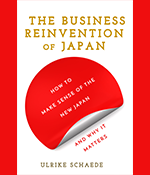
The Business Reinvention of Japan – How to Lead Corporate Culture Change, with Ulrike Schaede
09/21/2021: Japan’s leading companies are undergoing a reinvention away from consumer products to a stealth, deep-tech leadership in critical input and components. This requires new corporate processes and a new corporate culture that enable risk-taking and breakthrough innovation. Ulrike Schaede is joined by Eric Johnson (CEO, JSR), and Takuya Shimamura (Chairman, AGC) who have led such a corporate renewal, to identify key mechanisms how to manage culture change. Sponsored by the Japan Society of Northern California. -
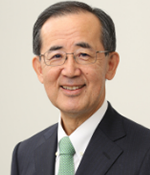
Tumultuous Times – A Conversation with Mr. Masaaki Shirakawa
09/07/2021: Watch the conversation with Masaaki Shirakawa, Bank of Japan's 30th Governor, on Japan's monetary policy and their role in 21st century international finance. Shirakawa was in office from 2008 to 2013, and as such oversaw the global financial crisis (“Lehman Shock”), the Great Tohoku Earthquake and Fukushima disaster, and a period of tremendous economic and political turbulence. He will look back on how Japan’s monetary policy experience was treated by Western economists, and suggest that we need to rethink mainstream macroeconomics. -
 07/06/2021: Japan may be embarking on a new era of economic prosperity. Due to years of reforms, societal change, business necessity, and generational turnover, Japan is on a very different trajectory — one that will differ from other countries, and inform how we balance prosperity, sustainability and business success. Ken Shibusawa, descendent of Japan’s famous business founder Eiichi Shibusawa (1840-1931), offers his insight on Japan’s new course.
07/06/2021: Japan may be embarking on a new era of economic prosperity. Due to years of reforms, societal change, business necessity, and generational turnover, Japan is on a very different trajectory — one that will differ from other countries, and inform how we balance prosperity, sustainability and business success. Ken Shibusawa, descendent of Japan’s famous business founder Eiichi Shibusawa (1840-1931), offers his insight on Japan’s new course.
-

The Many Myths about Japanese Entrepreneurship, with Robert Eberhart
06/22/2021: Japan is typically viewed as “behind” on entrepreneurship, startup innovation, and venture investments. In spite of two decades of initiatives to launch an innovation ecosystem, the naysayers claim, Japan has still not built a vibrant entrepreneurial community. But is this really true? Robert Eberhart presents a set of data that challenge the perceived wisdom, and shares what evidence we should look at to get a true sense of the Japanese innovation scene. -

Entrepreneurial Revival In Japan: A False Spring or Real Opportunity?, with Richard Katz
06/8/2021: Reviving Japan’s entrepreneurship is no impossible dream. Generational and technological changes are creating a new generation of successful entrepreneurs. So far, these trends lack critical mass; under “business as usual”, they’ll never reach it. If, however, supportive policies are implemented, reviving entrepreneurship can help rejuvenate the entire Japanese economy. -

E-Commerce and the Digital Transformation (DX) in Japan, with Evan Burkosky
6/1/2021: Japan is facing multiple challenges as its workforce ages and population declines, compounded by the digital transformation and the global pandemic. The pandemic has also affected consumer behavior; e-commerce and logistics are upended, from large retailers to small mom&pop shops. How far along is Japan in incorporating and embracing the new possibilities offered by the “DX”? -
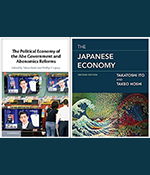
Abenomics and The Japanese Economy: A Conversation with Takeo Hoshi
4/20/2021: From stagnation, two lost decades, government debt, and zombies, to reform, industrial restructuring, and policies to increase Japan’s “financial metabolism”; where does the Japanese economy stand today and how do we evaluate the successes of the “Abenomics” reform programs? Takeo Hoshi offers insight from his two new books. -
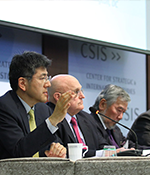
Japan’s Power and Influence in the Newly Emerging World Order, with Robert Madsen
4/6/2021: The 1945-2015 geopolitical order has come unglued. The rise of China and increasing unreliability of the U.S. have raised serious questions about Japan’s national security and international influence. Tectonic shifts in power and fundamental problems throughout Asia and the world will disproportionately affect Japan’s ability to exert influence abroad; what does this mean for the future of Japan? -
 3/30/2021: When COVID-19 first surfaced in 2020, Japan made global news with its well-handled cruise ship challenge in the Yokohama port; Japan was the poster child of pandemic responses. But in early 2021, the country was hit harder; lockdowns were ordered and hospital limits were reached. One of Japan’s leading public health experts provides insight on the current situation, what health officials are planning, and how to weigh Japan’s prospects.
3/30/2021: When COVID-19 first surfaced in 2020, Japan made global news with its well-handled cruise ship challenge in the Yokohama port; Japan was the poster child of pandemic responses. But in early 2021, the country was hit harder; lockdowns were ordered and hospital limits were reached. One of Japan’s leading public health experts provides insight on the current situation, what health officials are planning, and how to weigh Japan’s prospects.
-

Japan’s Grand Strategy in Outer Space, with Saadia M. Pekkanen and Ellis S. Krauss
3/16/2021: Japan’s grand strategy in the space domain showcases their international trajectory through a new lens. Foundational technologies position it to compete and partner globally, legal and policy frameworks synchronize its commercial and military strategies, and space diplomacy keeps it abreast of shifting geopolitical interests. Pekkanen’s latest book compiles her research insights on the implications for Japan’s allies and rivals in this changing world order. -

Current Trends in Japanese Marketing, with Cauitie Ocada and Gary Bremermann
3/2/2021: For decades, Japan’s marketing industry has been dominated by a few firms, spearheaded by Dentsu. Recently, the doors have opened for independent and foreign competitors. The explosion of new ideas and players is blurring the line of advertising, and data analytics has further changed the industry. This conversation gives an expert insight into how Japanese marketing is adapting to these challenges. -
 2/23/2021: When he wrote “No.1” in the 1970s, the late Ezra Vogel aimed to wake up a stagnant America. In an unexpected turn, it greatly impacted U.S. research on Japan and reshaped Japan’s own aspirations. The catchy title and direct U.S.-Japan comparison opened a new discourse across many academic disciplines as well as business and management; the resulting drive to “be number one” lives on today.
2/23/2021: When he wrote “No.1” in the 1970s, the late Ezra Vogel aimed to wake up a stagnant America. In an unexpected turn, it greatly impacted U.S. research on Japan and reshaped Japan’s own aspirations. The catchy title and direct U.S.-Japan comparison opened a new discourse across many academic disciplines as well as business and management; the resulting drive to “be number one” lives on today.
-
 2/9/2021: In Japan’s robust effort to create a new Silicon Valley, what worked for the U.S. may not work on a universal level. Japan must work to build the spirit and excitement of entrepreneurship, balance the desire of the Japanese college graduate between big company stability and start-up culture, and maintain the goal of building demand with great long-lasting companies.
2/9/2021: In Japan’s robust effort to create a new Silicon Valley, what worked for the U.S. may not work on a universal level. Japan must work to build the spirit and excitement of entrepreneurship, balance the desire of the Japanese college graduate between big company stability and start-up culture, and maintain the goal of building demand with great long-lasting companies.
-
 2/2/2021: Once lauded as the answer to clean energy, nuclear’s risky nature and bad outcomes like the Fukushima Daiichi power plant disaster led to denuclearization, resulting in the partial return of coal and oil. Even with plans for alternatives like hydrogen and ammonia, it is still unclear if full denuclearization is feasible. As we chart a global path to a greener future, Japan’s choices on solutions like a carbon tax will be important.
2/2/2021: Once lauded as the answer to clean energy, nuclear’s risky nature and bad outcomes like the Fukushima Daiichi power plant disaster led to denuclearization, resulting in the partial return of coal and oil. Even with plans for alternatives like hydrogen and ammonia, it is still unclear if full denuclearization is feasible. As we chart a global path to a greener future, Japan’s choices on solutions like a carbon tax will be important.
-

The Power of Suganomics, with Jesper Koll
1/12/2021: Jesper Koll took a panoramic view over Japan’s current landscape - and wishes to be born-again as a 23-year old Japanese, hungry to take advantage of opportunities that come with disruption. His main themes for 2021 are: (1) Pragmatism: Suganomics is pushing stability through hands-on policy measures; (2) Private sector reform: the Covid-19 pandemic is a catalyst for corporate reform; (3) Profit: the corporate outlook for Japan is unique from the U.S. -

Japanese ICT with Marc Einstein
12/1/2020: Japan remains a leading R&D country, but its future competitiveness in a world of 5G, OpenRAN, and IoT will depend on sales & marketing adaptations to a world where E-commerce and AI dominate value creation. If the Japanese government wants the country to be a leading tech exporter in the future, it needs to focus on quick development of tech that can be sold overseas, not cutting costs domestically. -
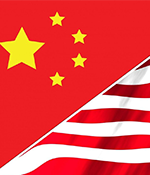
Japan-China Business Relations, with Hiroki Takeuchi and Victor Shih
11/24/2020: Impossible for many, decoupling from China may even be suicidal for Japan. Bringing China, Japan’s largest customer of input materials, into a broader rules-based international order would require China to undertake domestic economic reforms that threaten its development model. While China has expressed a willingness to participate, its actions are often contradictory and leave much to be desired. Japan might consider diversifying supply chains for more resilience, yet challenges remain. -
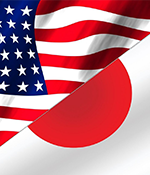
JFIT Roundtable: U.S.-Japan Relations after the Election
11/10/2020: Biden’s win has caused reservations in Japan about the personality, attention, and alignment of the U.S.-Japan relationship. Yet, Japanese counterparts welcome the return to predictability and discipline that was missing since 2016. While the U.S. may need to patch up other relationships, U.S.-Japan ties remain among the tightest in the world, cooperating on issues like Chinese expansion and North Korean aggression. -
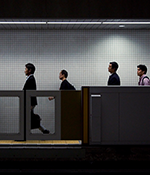
Japan’s Business After Abenomics, with Kazuhiko Toyama
9/29/2020: While Abenomics greatly pushed the transformation of the “go-getter” Japanese companies, those success cases only comprise one part of the Japanese economy. The majority of companies remain steeped in traditional management structures. Toyama discusses the challenges companies face cultivating homegrown CEOs who are willing to make disruptive decisions, discontinue underperforming units, and push resources into innovation units. -

Japan’s Business Transformation, with David Chetwynd
9/22/2020: Despite its shrinking workforce, Japan has upheld its economic growth curve through a combination of computing, autonomous machines, and Abenomics. Auto manufacturing remains Japan’s largest Fortune 500 segment, but what Schaede describes as the new aggregate niche strategy is helping other sectors to consolidate market power in smaller segments and maintain global competitiveness. -

Japan’s Geoeconomic Strategy, with Saori Katada
9/8/2020: In the early 2000s, Japan’s geoeconomic strategy took a turn for the liberal. Once a trade villain, Japan has become a champion of the international liberal order, overtaking the U.S. An unintentional complement to Schaede’s Business Reinvention of Japan, Katada’s Japan’s New Regional Reality makes the case that shifts in the regional balance of power and Japan’s international political-economic structure pushed it towards its liberal strategy. -
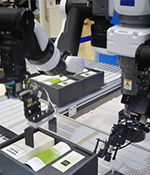
Robotics and the DX, with Alberto Moel
9/1/2020: Alberto Moel of Veo Robotics outlines the complexity of factories and distribution centers, and how the U.S, China, Germany, and Japan are competing for dominance of the “digital stack”. The difficulties of digitizing shopfloor equipment makes standardizing, integrating, and harmonizing the industrial process unlikely for the immediate future. Yet, Japan and Germany are positioned to lead the way; they control high-quality factory data for high-level analytics, giving them leverage in the U.S.-China trade war. -

Japan’s 2040 Energy Mix, with Masakazu Toyoda and Kenji Tateiwa
8/18/2020: Stressing that no energy source is perfect, Masakazu Toyoda, Chairman of IIE, proposes several quantitative energy targets for the 2040 energy mix. Kenji Tateiwa, from TEPCO, describes TEPCO’s transition into an “ambidextrous” company and outlines a qualitative “Anti-Fragile” grid strategy that could reinforce Japan’s energy mix in the future. -
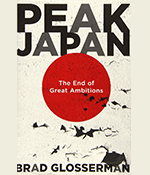
Peak Japan: Is This as Good as it Gets?, with Brad Glosserman
8/11/2020: Glosserman’s new book Peak Japan argues that Japanese complacency has impeded the country’s ability to adapt to maintain its global leadership position, by discouraging innovation, entrepreneurship, and the outward orientation that Japan must take in response to its shrinking population. However, Schaede’s The Business Reinvention of Japan argues that Japanese companies are innovating and staying competitive. -

The Carlos Ghosn Saga, with Bruce Aronson
8/4/2020: Aronson puts the legal case of Mr. Ghosn in the context of the pressures Japanese companies face as they internationalize, as well as the parameters of Japan’s criminal justice system. He argues that while Japan’s corporate law norms are slower to adapt to modern trends, Japan’s legal system is fairer than perceived. Even as Ghosn decried the system, he was, ironically, treated the same as other white-collar defendants in Japan. -

Innovation, Entrepreneurship, and Change Management, with Gen Isayama
7/28/2020: Japan’s startup culture in Japan has been stunted by seniority-based hierarchies, consensus-based decision making, and a risk-averse culture. Isayama discusses how his company and venture fund, World Innovation Lab, works with Japanese companies to raise social acceptance and corporate renewal. He builds examples of how large Japanese firms can connect with innovators, launch new entrepreneurial units, and monetize R&D advances. -

Japan’s Post-Fukushima Energy, with Nobuo Tanaka and Jeffrey Rector
7/7/2020: Japan is lagging on future-oriented energy policy, and society is paying the price. 2020 has marked an inflection point in global energy, as oil production has peaked and electricity is set to take over. Japan’s fragmented and monopolized grid connectivity and underdevelopment of renewable energies put it behind many other OECD countries for this transition. Despite this, rapid transformation is still possible. -

Corporate Governance with Peter Gourevitch
6/30/2020: Two decades of corporate governance reforms have brought great change in Japan, even as its system continues to be quite different from the U.S. or U.K. Long-term value creation and societal stability maintain precedent over stock valuations and financial engineering. Gourevitch suggests that developed countries ditch their obsession with economic growth and follow Japan’s model, prioritizing well-being and affluence over growth metrics. -
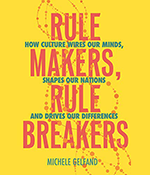
Culture and Crisis, with Michele Gelfand
6/23/2020: Professor Michele Gelfand, creator of “Tight-Loose Theory,” lays out how countries differ persistently and significantly in terms of how strong the consensus is on the “right” behavior, and how tolerant people are vis-à-vis deviants. This conversation applies that framework to Japan, from changes in business culture to how society copes with exogenous shocks such as earthquakes or pandemics. -

Japan’s Trade Policy in 2020, with Megumi Naoi and Christina Davis
6/9/2020: Japan’s unique export-oriented growth model, part of their new advocacy for free trade, may have paved the path for the ideological tensions, regional power shifts, and rising anti-globalist sentiment we see today in global trade. Japan’s strategy of containing and engaging China, alongside deteriorating South Korea relations, could hurt Japan’s pursuit of post-COVID leadership towards further globalization. -
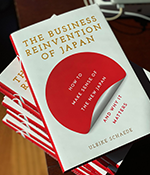
Japan’s Business Reinvention, with Stephen Haggard
6/2/2020: Schaede’s new book The Business Reinvention of Japan outlines Japan’s quiet adaptation into a technology anchor of global supply chains, maintaining its world standing despite setbacks. Developing deep-tech leadership in key input components, large Japanese companies have built an “aggregate niche” strategy to remain competitive. Coupled with workplace reforms and Abenomics, the modern kaisha is nimble and innovative enough to keep Japan at the top. -

Sustaining Entrepreneurism During COVID-19, with Yuichirō Yoshinari and Takashi
5/26/2020: Whether in Japan or California, the digital transformation will be crucial during COVID-19. For Japan in particular, the pandemic may be a catalyst for the digitalization they have lagged on, presenting opportunities for companies in innovative sectors. Through strong management, culture change, and customer-oriented strategies, Japanese companies may weather this crisis to emerge even stronger. -

COVID-19 and Economy, with Robert Feldman and Takeo Hoshi
5/19/2020: Japan has done well to reduce its COVID transmission rate, but full recovery is projected for 2022. Struggling workers and companies need support in the meantime but, in the long run, productivity growth is the biggest challenge. The pandemic may be the impetus for a transition to a more dynamic business environment that is based on innovation models, R&D, and equitable regulatory structures. -

COVID-19 and Changing HR Management, with Kyota Omori, Lei Cao, and David Richards
5/12/2020: COVID-19 has sped up planned work reforms such as flexible working hours and work-from-home, which are now the new normal. Omori shares first-hand experience as chairman of Mitsubishi Research Institute on the challenges that come with improvements. Strong government involvement will be required to ensure lasting, positive change in Japanese work culture change, even after COVID-times.
Business and Economy
Past JAPAN ZOOMINAR @ UC San Diego that focus on business and the economy.
